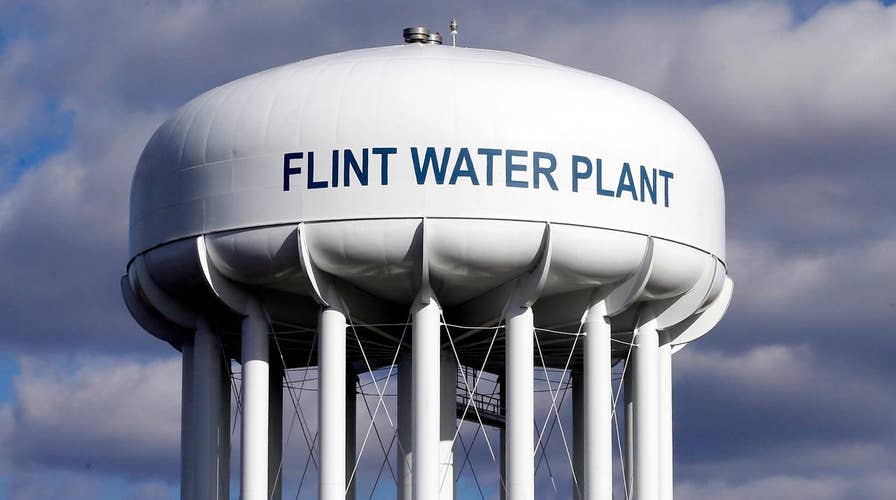Water in Flint, Mich. no longer exceeds federal lead limits
Residents are still being told to use faucet filters or bottled water because an ongoing mass replacement of pipes could spike lead levels in individual homes
LANSING, Mich. – Flint's water system no longer has levels of lead exceeding the federal limit, a key finding that Michigan state environmental officials said Tuesday is good news for a city whose 100,000 residents have been grappling with the man-made water crisis.
The 90th percentile of lead concentrations in Flint was 12 parts per billion from July through December — below the "action level" of 15 ppb, according to a letter from the Michigan Department of Environmental Quality to Flint's mayor. It was 20 ppb in the prior six-month period.
Flint's lead levels are again comparable to other U.S. cities, state officials told Associated Press ahead of an official announcement.
TWO GUYS TRAPPED IN CAR DURING AVALANCHE PASS THE TIME WITH SELFIES
"This is good news and the result of many partners on the local, county, state and federal levels working together to restore the water quality in the City of Flint," Michigan Department of Environmental Quality Director Heidi Grether said in a statement. "The Flint water system is one of the most monitored systems in the country for lead and copper, and that commitment will remain to ensure residents continue to have access to clean water."
More on Flint water crisis
Residents, whose mistrust in government remains high nearly three years after a fateful switch of the city's water source in April 2014, are being told to continue using faucet filters or bottled water because an ongoing mass replacement of pipes could spike lead levels in individual houses.
COPS IN COLORADO CAN DESTROY POT, NOT SAVE IT, COURT RULES
Flint's public health emergency began when officials failed to properly treat lead lines for corrosion.
The state acknowledged the lead problem in October 2015. Lead from old pipes leached into the water supply because corrosion-reducing phosphates were not added due to an incorrect reading of federal regulations.
Elevated levels of lead, a neurotoxin, were detected in children, and 12 people died in a Legionnaires' disease outbreak that experts suspect was linked to the improperly treated water.
Gov. Rick Snyder has apologized for the crisis that has largely been blamed on his administration.
"The remarkable improvement in water quality over the past year is a testament to all levels of government working together and the resilient people of Flint helping us help them through participation in the flushing programs," he said in a statement. "There is still more work to do in Flint, and I remain committed to helping the residents recover and restore their city."


